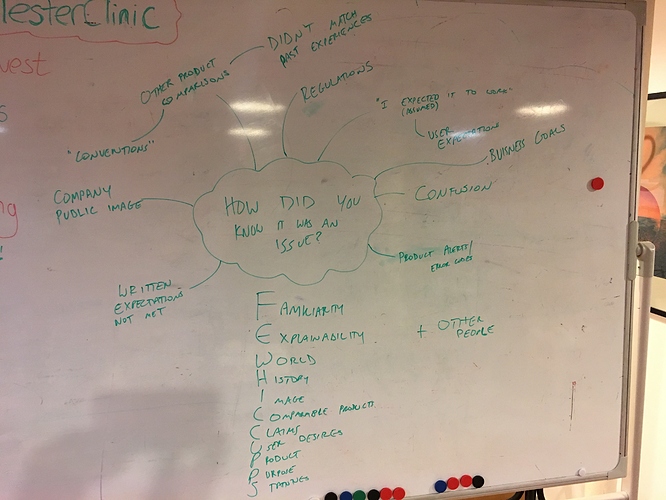We had such a great time with our September hosts Songkick over near Old Street. This is one of my personal favourite sessions as I have a soft spot for games and being able to see how people can apply their newly extended understanding of heuristics and oracles to one of my favourite past times is always great. But let me not get too far ahead of myself 
What we kicked off with was a small group activity of exploring the BBC.com website following a couple of charters created by Dan. After having about 15 minutes to explore the app under these high level focus areas we then brainstormed what people decided was important to test. And while this resulted in some good discussion, it was a bit quiet for our liking. This was easily fixed up by narrowing the question to “What inputs did you use (or could you have used) to generate test ideas?”. This resulted in the amazing word cloud below of ideas:
I would love to see any more ideas come through this thread because we were a bit short on time and I know there were more hands raised when we had to move on! And this was that much more apparent when the small groups were set off on a different test charter with these new heuristics to lean on for generating test ideas and it was a far busier 15 minutes than the first.
Moving away from test ideas we looked at “how do you know when you have identified an issue?”. While there were some sighs and laughs about it, we had to work through some brain storming to come out with ideas for how to articulate the issues verbally to our team members and stake holders. For example, how do you decide what is in scope? Are ads on your side in scope? How do you decide if something is your “personal taste” versus correct?
But I personally was really excited to see how many of the FEW HICCUPPS oracles were identified by the group as important factors to concider when identifying defects. This made my job (slightly) easier when trying to write the whole mnemonic up on the board!
Finally the best part…using these oracles to try and play an obscure game where the rules have been (so rudely) removed from the packaging! This was so interesting to witness because different groups fell into the different traps of test designing that we discussed including over thinking (or analysis paralysis) where they never even got past how to start the game! Others fall into the trap of running out of ideas and settling on quick assumptions made.
In either case, the games were a big hit and people found that their previous expectations of games were often helpful even if people didn’t immediately realise that is where their ideas came from!
Thank you to everyone who came by and of course Songkick, Dan, Simon and all the mentors for helping deliver another great session of SWTC London. See you all in October for note taking!



 Great write-up Abigail.
Great write-up Abigail.